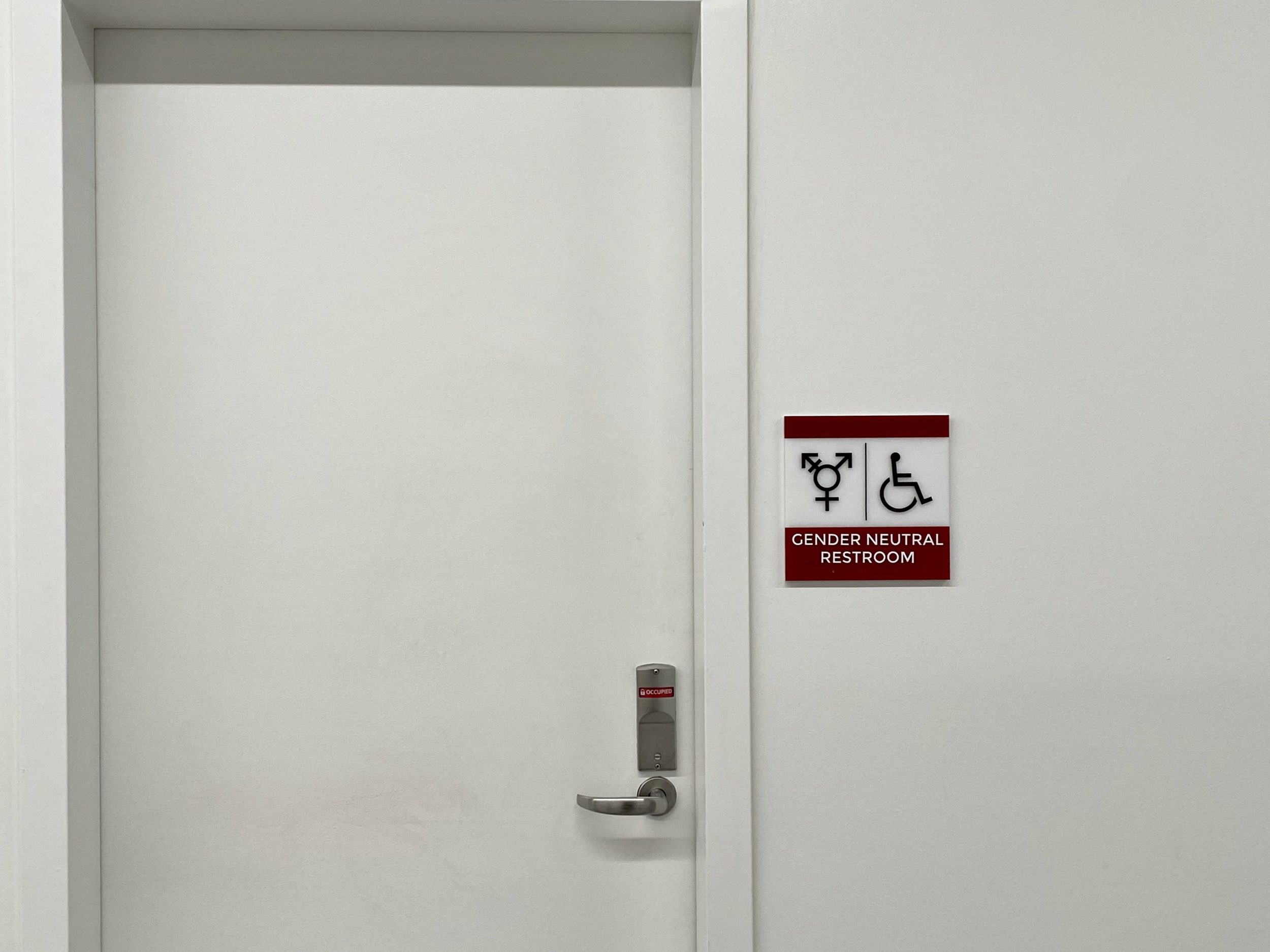Governor Spencer Cox signed State Bill 16 Jan. 28, which bans transgender surgeries and hormone blockers for minors in Utah.
Hormone blockers, also known as puberty blockers, delay the physical changes that don’t align with one’s gender identity. Utah senate voted 20-8 on the bill.
Sarah Ostler, LGBTQ+ student organization president, a sophomore psychology major from Highland, spoke about the new bill and how it will affect students who will have the choice at 18 years old to have gender transitioning surgeries.
“I have a transgender sister, and she first came out when she was about 17… but I have a very close relationship with transgender people,” Ostler said. “With this bill, I feel like it hurts… it’s very hard to see yet another bill that’s going to affect the mental health of the most vulnerable population in Utah.”
Ostler said when individuals can’t align with the gender they would like to, it creates a wave of self harm. That self harm is affecting minor’s and adult’s mental health in an extremely negative way.
“I don’t think lawmakers should make that decision,” Ostler said. “I think parents and the child and the medical professional should sit in a room together and make their own medical choices.”
Former student, Dana Kinyon, a senior design major from St. George, is now attending the University of Utah, and he shared his thoughts on SB 16.
Kinyon said he feels the senators and lawmakers in Utah are misinformed -or possibly uneducated- about the bill itself and the procedures it’s banning. Kinyon is transgender and started hormones when he was 15 years old.
Kinyon said: “I can personally say that I did have a lot of mental health issues. I was suffering from depression, and it was mainly due to lack of healthcare with starting my transition. I just really felt uncomfortable in my body, and once I realized that I was trans, it was a pretty quick transition out of depression because I was able to access that healthcare.”
Kinyon said the concerns lawmakers have over puberty/hormone blockers aren’t that concerning. Puberty blockers can be reversed if someone chooses to have their effects reversed.
Kinyon said, “Research does show that it does improve quality of life for people that are transgender to go through hormone replacement therapy or puberty blockers based on their age.”
Kinyon said the point of puberty blockers is to prevent normal puberty from starting. Stopping puberty blockers allows the process of puberty to start.
“Once you stopped taking puberty blockers, it would just allow the normal process to start,” Kinyon said. “So, that would give you an advantage if you were wanting to start hormones later in life.”
When asked about how this bill will affect the mental health of both minors as well as those who barely turn 18 years old, Kinyon said there will be a negative effect. He said before he started his transition, he was in a dark place in his life.
Kinyon said: “I was lucky enough to get access to healthcare that I desperately needed and wanted. I can’t imagine how I would feel if I was a minor right now, and I was being faced with this bill that is essentially banning something that would make my quality of life a lot better.”
Mike Nelson, interim director for the Center for Inclusion and Belonging, said there needs to be a balanced approach when it comes to LGBTQ+ healthcare.
“I think one of the biggest things we need to remember is that Governor Cox said himself this isn’t perfect legislation,” Nelson said. “I think that’s a little scary… it almost seems that it was forced or rushed.”
Nelson said parents have the obligation to provide their children with the best healthcare. It’s also a doctors responsibility to provide their patients with the best healthcare. He said he has concerns for the mental well being of students who will be affected by this bill.
“Sucide is a reality and for some, that’s the route that they choose,” Nelson said. “I’m worried that is something that could continue to rise.”
Nelson said he has seen individuals of the LGBTQ+ community, including non-gender conforming and transgender, be under high levels of pressure, anxiety, depression and gender dysphoria. He said students are going through a lot. They are experiencing historical occasions such as COVID-19, wars, recessions and attacks on individual rights.
Nelson said, “When we look at our department and what we do is that we want to make sure people have a place, and that they have a safe space, and that they are able to get the resources they need.”


